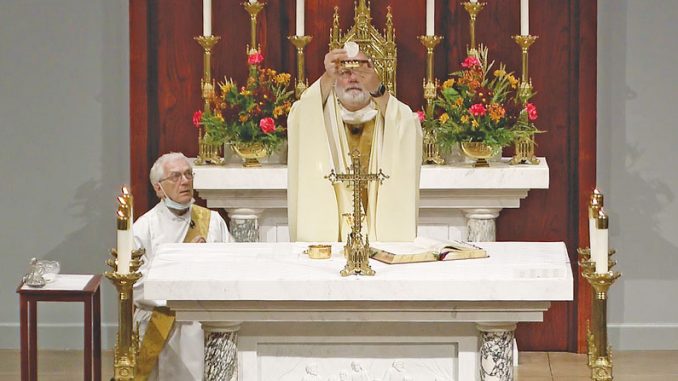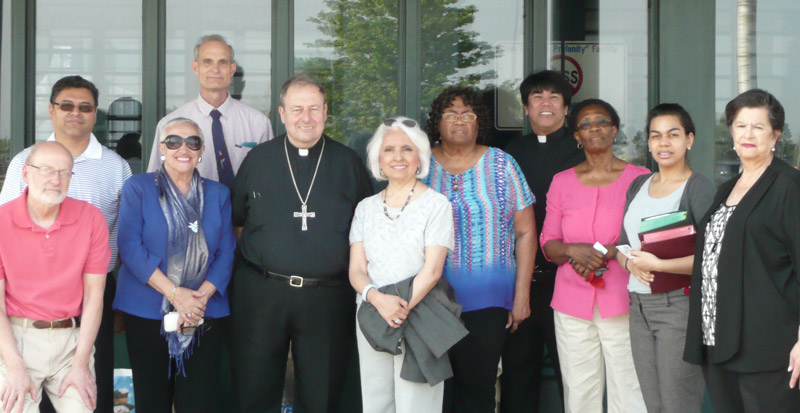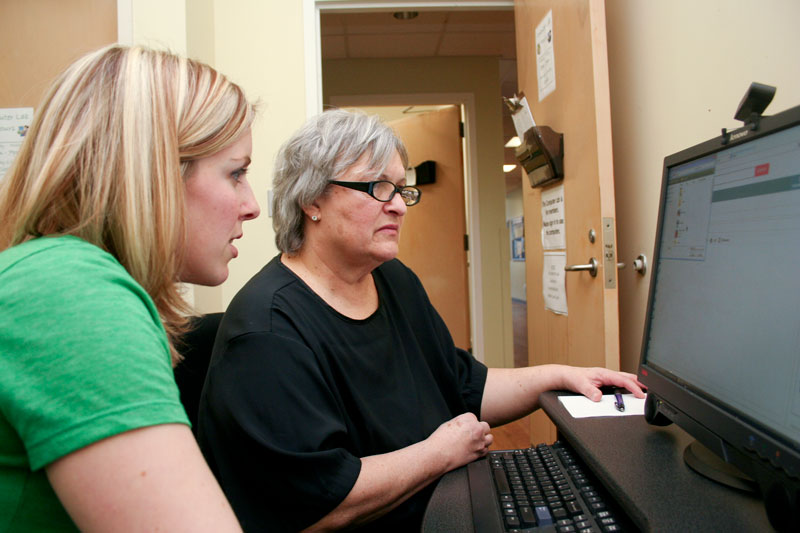
The novel coronavirus pandemic has been hard on people of faith everywhere, cutting many people off from attending worship services, interacting with clergy and church friends, and receiving sacraments.
Two of the hardest hit communities are the homebound and the incarcerated. The pandemic has forced changes in both ministries that have made it difficult to navigate for clergy and volunteers, and spiritually challenging for the people affected.
In the Diocese of Charleston, priests and prison ministry volunteers have been cut off from visiting correctional institutions since the pandemic hit in March, said Redemptorist Father Mike Koncik, diocesan vicar for prison ministry. Correctional institutions around the state suspended access to visitors and volunteers in the spring, and access continues to be suspended until at least Nov. 30.
Since the beginning of the pandemic, there have been 2,355 confirmed cases of the virus among inmates, according to statistics released by the South Carolina Department of Corrections. Of those, 2,073 inmates have recovered, 251 cases are active and there have been 31 deaths. Six of the state’s institutions have not had any cases of the novel coronavirus.
Because of the ongoing risk from the virus, inmates around the state are being encouraged to carry on with personal practice of their faith, said Chaplain Michael Brown, chief of pastoral services for the department of corrections.
He said chaplains are distributing religious literature and publications (including The Catholic Miscellany) within prison dormitories, and chaplains are working on ways to provide Bible studies, worship opportunities and other spiritual resources virtually. Brown said they are in the process of distributing tablets to all inmates, which will include access to the Bible and other religious resources.
Chaplain Brown said he and Father Koncik are also working on plans to provide some sort of virtual access to Mass and other study resources for inmates.
Father Koncik said volunteers from Our Lady of the Hills Church are also working with volunteers from Kairos, an interdenominational program that ministers to inmates, to bake batches of cookies to be distributed in some Midlands correctional institutions. The cookies will serve as a sign to the inmates that even though in-person visits aren’t possible, there are people on the outside thinking of them and praying for them.
Ministry to the homebound, meanwhile, continues to be a challenge as well, because extraordinary ministers of holy Communion, in many cases, are unable to bring them the Eucharist.
At St. Joseph Church in Columbia, extraordinary ministers have not resumed making home visits because of the ongoing virus threat. Instead, volunteers are trying other methods of outreach, according to Sister Mary Cecile Swanton, a Sister of St. John the Baptist who is director of spiritual development for the parish. She and others have been making regular phone calls to the homebound and reaching out to them through emails and cards when possible. The parish also has offered a consistent selection of virtual ministries, including a virtual Bible study that just started recently.
At Our Lady of the Lake Church in Chapin, Deacon Jim Atkinson coordinates ministry to the homebound and has been doing everything possible to get the Eucharist to people.
“This is one of my favorite ministries, because when you are working with the homebound you are acting as an apostle, you are literally taking Jesus to the people,” Deacon Atkinson said. “It’s been very challenging and frustrating to try to make this work, because many homebound people are nervous about having someone come inside their home, and there are extraordinary ministers of holy Communion who are concerned about going to someone else’s house.”
He said normally Our Lady of the Lake has about 15 extraordinary ministers of holy Communion who work with the homebound, but currently only about five are able to do so because of concerns about the virus. Those five take the Eucharist to people who are able to meet on the porch or another outdoor location on their property where distancing is possible.
Deacon Atkinson said one parishioner meets with a minister in a gazebo. Each minister takes time to talk with the homebound person and share Scripture readings with them, as well as giving them Communion.
As a way to reach more people, Deacon Atkinson has also started a training program to teach parishioners what they need to know so they can bring the Eucharist to their own homebound family members, such as spouses, parents, and grandparents.



